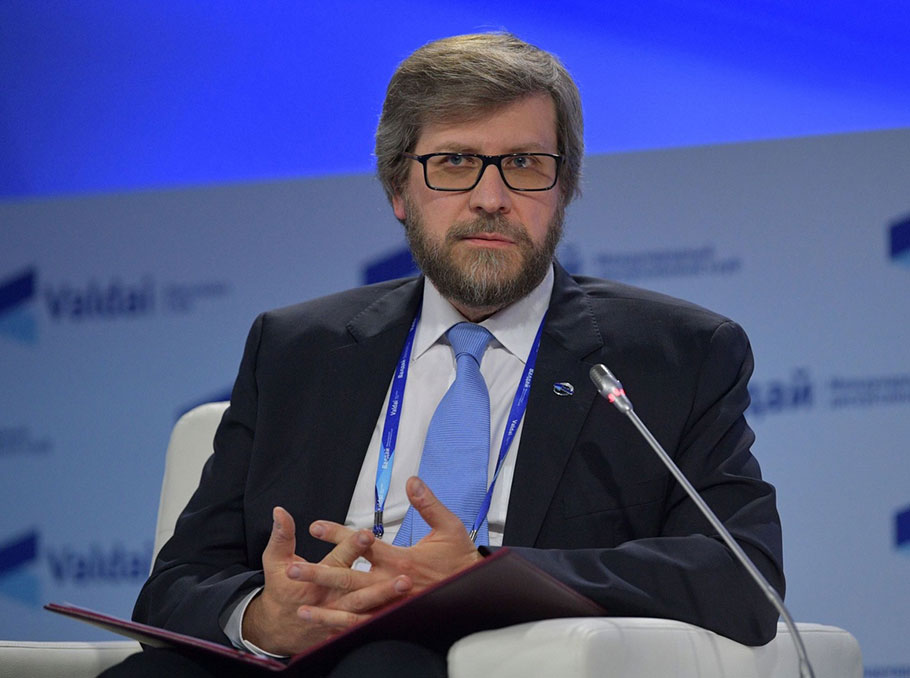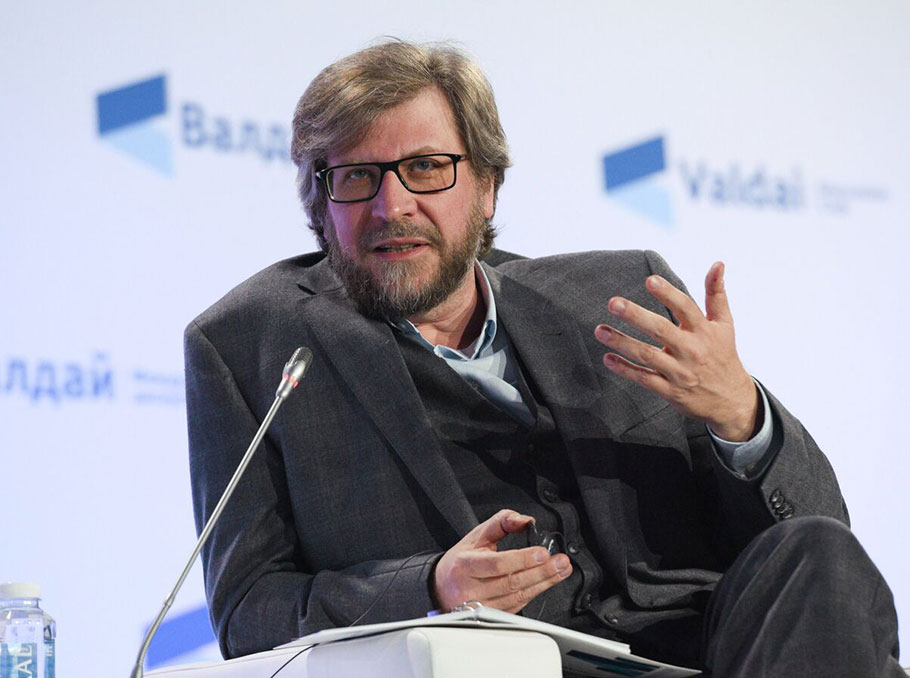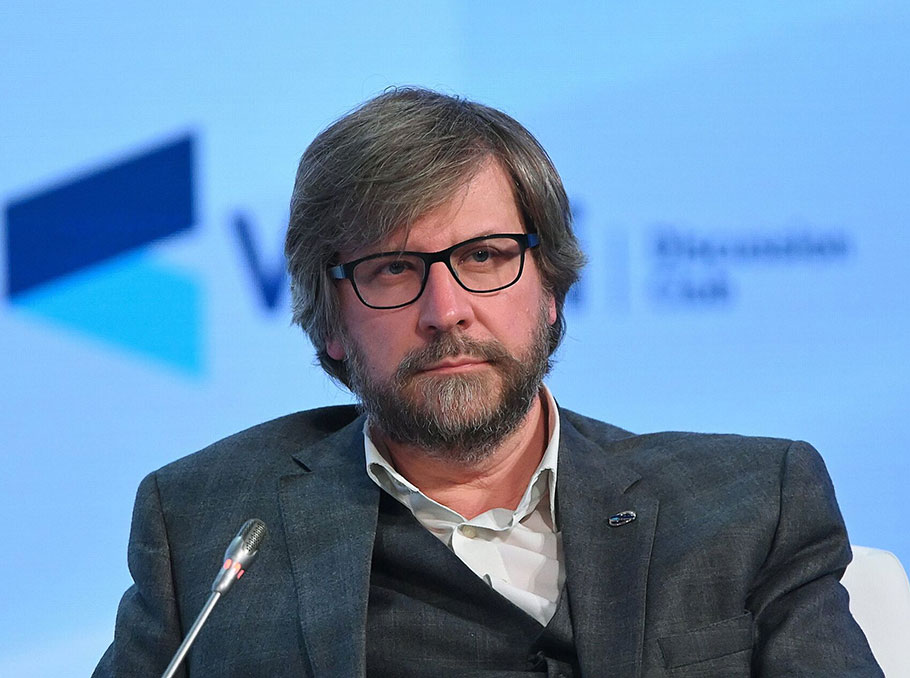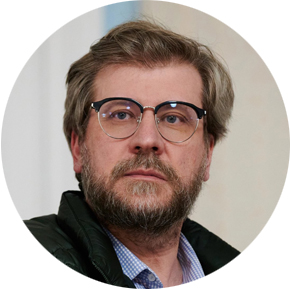Interview of Fyodor Lukyanov, Russian political scientist, Editor-in-Chief of “Russia in Global Affairs magazine”, Chairman of the Presidium of the Council for Foreign and Defense Policy, to Mediamax
- Can the “March of Justice” initiated by the head of the Wagner PMC (private military company) Yevgeny Prigozhin have implications for Russia’s foreign policy? Should Russia’s neighbors and allies be concerned about it?
- Indeed, this is a unique case, because you will not find anyone like Yevgeny Prigozhin. We can argue long, ask questions like how it happened that he was allowed such a level of activity and publicity with no one curbing him for months. To his credit, though, he has never hidden his views and his nature. But this is already a topic for a separate discussion related to the specifics of the formation of Russian statehood in the post-Soviet period and, in particular, the tools that have been used for this over the past 10 years, in particular for the solution of foreign policy issues.
However, even if the problem with him is not finally solved, it has been greatly reduced: this will no longer be allowed, besides, no other such figures are seen. The positive outcome of all this was that he has not received much support. The state apparatus and society reacted if not to say quite calmly but certainly without the panic that could have occurred if the state was under stress. This is probably a separate big topic - the state of Russian society over the last year and a half. It should be seriously studied from a sociological point of view. I think it is very non-linear, that is, it is not as one would assume, given the extraordinary nature of the circumstances. The beginning of the SMO (“special military operation”- this is the way Russia officially calls the war in Ukraine-Mediamax.) was a shock, its course was very unexpected, and no one had foreseen such excesses as Prigozhin’s march, and all this should have strongly destabilized society. But it did not happen. I do not know what it is agreed with, partly, because the active ferment of potential protesters, who could have caused destabilization in the country, left Russia immediately. But on the whole, Russia once again surprises with a non-linear response, not the one others expect.
Going back to June 24, I believe the consequences are inevitable within the country; it was a push that should bring about change, but hardly immediate. As far as we know Putin, he never acts under pressure when someone demands something. Everyone understands that some structural and personal changes are coming and they will take place sooner or later. As for foreign policy, of course, when such things occur in a warring country, they cause additional anxiety among all external partners. The fact that the front did not flinch in any way shows that there is sufficient stability here, but no one knows whether this was an isolated case or a system. Therefore, it will take maximum effort and some time to demonstrate that it was an isolated excess.
- What do you think post-war Armenia and pre-war Armenia are partners of different values for Russia? If to speak putting political correctness aside, from the perspective of realpolitik.
- I would not say that they are different in value. Realpolitik is, of course, a very good thing, and everyone involved in politics says, “let’s drop sentiments.” The approach, however, is not entirely correct, and when you begin to be guided only by this, you come to erroneous, distorted conclusions. Therefore, I think it is not enough to consider Armenia’s value only from the point of view of it being an outpost in the Caucasus.
First, strictly speaking, the outpost is still there. Of course, the Armenian leadership sometimes baffles with its trend of thought. If it comes to the point where the incumbent or future leadership of the country really states that Russia is no longer needed and it should leave, different scenarios are possible, up to leaving, or by the way, vice versa. But this is not happening so far. Armenia remains the country where the Russian military force is deployed. Secondly, with all the moods swinging, this is a friendly state and friendly people, no one in Armenia perceives Russia as an enemy. As to the Russian military campaign, as far as I know, there are no claims against Armenia, neither in human terms, nor in how the Armenian official and unofficial structures contribute to all the necessary processes, unlike a number of other allies.
 Fyodor Lukyanov
Fyodor Lukyanov
To what extent did the defeat in the war affect the perceptions? I do not understand well the change in Armenia’s behavior, not in relation to Russia, but in general. Of course, I am not a specialist in military affairs, but it seems from the outside that this reluctance and unwillingness to stand up for something - expressed both in lack of military preparedness and in political drift towards recognition of the new status quo - perhaps came as a surprise. I understand that society is getting tired, nevertheless, this refutes the existed expectations that any movement towards abandoning Karabakh will cause an acute political crisis. We, in Russia, are by no means the ones to judge whether this is good or bad, but it was a surprise. Now everyone got used to it, since all dots over and are put, but I wonder what will happen if it turns out that the Armenians will no longer live in Karabakh. Where and how can they go?
- This reminds the question “Which came first, the chicken or the egg”? Pashinyan says that during and after the war, it became obvious that the security system Armenia has relied on for the past 20-25 years is not working. The CSTO does not take unequivocal steps in support of Armenia, Russia does not guarantee the fulfillment of the obligations fixed in the post-war trilateral agreements. And representatives of the ruling party actually say that in conditions of absence of support and security guarantees, Armenia has to make concessions not to lose even more in the face of growing pressure from Azerbaijan.
- As for the CSTO, no one in Armenia has ever counted on it as an organization. Everyone understood perfectly well that this was some kind of homage towards Russia: it has such an organization, we are members there, but basically, all security guarantees were based on bilateral relations. It was and is still so. Secondly: as for the war itself, again, I am not an expert, but, as far as I know, assistance and weapons were provided, and if Russia and Putin personally had not made efforts for reaching peace, the results could have been more devastating. Not only the incumbent, but also the former leadership of Armenia did not clearly formulate its attitude towards Karabakh. The fact that Karabakh has never been recognized by Armenia, unlike Northern Cyprus, recognized by Turkey only, or South Ossetia and Abkhazia recognized by Russia, of course, created a legal ambiguity that no one could agree to. How can a third country defend a territory, towards which the Armenian side itself has no clear position? Moreover, Azerbaijan has always been and will remain very closely connected with Russia and a very important state in this region. Therefore, this system was kept solely on the military balance or imbalance, which was in favor of Armenia for a long time, and when it began to change in favor of the other side, a question to the Armenian leadership arose: what did they do to slow down or reverse this process? That’s if you take the backstory.
As for the current situation, of course, Russia, which started the special military operation in Ukraine and found itself in the situation it appeared today, is in a more constrained position than before. At least for the reason that Turkey’s role in the political life of the region in general and, in particular, in relations with Russia, has increased many times. The Azerbaijani leadership clearly understands everything and uses it in its own interests, and probably this is the way everyone would do. Again, I understand the logic after the defeat: what should we do? A whip can’t stand up to an axe. But it feels like they decided to roll up the whip somewhere: I don’t see any steps to increase the combat capability of Armenia. Again, I’m not an expert, maybe I don’t know something. It does not look like that Armenia draws conclusions for itself, at least for the long term.
As for Russia, despite all the criticism, Armenia will not have any other cornerstone partner. All the talks about rapprochement with the West always make me laugh: where the West is, and where Armenia is. The nearest West for Armenia is Turkey. Of course, the relations with Turkey should also normalize and they will, but this does not mean that sincere trust will be established between them. Therefore, I think that the new configuration, of course with Russia’s engagement, is a certain system of peace guarantees for Armenia. Statements about withdrawing from the CSTO can be understood in emotional sense, but I’m not sure that they are far-sighted in terms of rational approach. And most importantly: if there is a permanent or temporarily scheme of guaranteeing the security of the people living in Karabakh – how can it work without Russia? Who else will do it? Will it be the European Union?
- Is some new form of relations between Armenia and Russia possible?
- We have passed a certain path which we probably wouldn’t like to pass, but we have passed it. What matters is that it is not only related to Armenia, it is related to everyone, and to Russia too.
The post-Soviet history is coming to an end. It is really coming to an end. We thought it was over long ago, but it is back. In my opinion, it began with Armenia five years ago. A generational upgrade began, new people started to come, dramatic shifts started to take place in the world taking away from the post-Cold War agenda. Four or five years ago I wrote that all post-Soviet countries enter a period of proving their viability: because we all emerged from the collapse of the Soviet Union. The USSR collapsed - now this is your country, your borders. And everyone recognized this, again, by fact. The moment has come when the fact must be proved by own viability, but not everyone will be able to do it. Russia is not an exception. Russia also goes through this path, in its own way. It is clear that here we have other resources, other possibilities, other ambitions, but it is the same thing.
 Fyodor Lukyanov
Fyodor Lukyanov
In fact, the post-Soviet period started with the Karabakh conflict. And the fact that it is somehow coming to an end, even if in this way, is in some sense a symbol of the end of the post-Soviet period. Things will be different from now on. Among other things, border perturbations occur. Why was the Karabakh conflict a sore point for many decades? Because the collapse of the Soviet Union proceeded according to the following principle: everything remains as it is, nothing will be touched. Yeltsin did not bring up the topic of Crimea, as to Karabakh, it was an exception, as it started earlier. So now everyone else came to the point that all these lines generally do not work. Russia - first of all, starting with Crimea, and now even more so. In the Caucasus, on the contrary, the status quo is returning, but it is unclear whether it will return and whether this process will lead to somewhere and if yes, then how. This is why it is a truly historic moment and not only for Armenia and Azerbaijan, but in general.
What Russia will be as a result of this, we do not know, as I think that the main essence of the Ukrainian conflict is self-determination. Ukraine is self-determining - it was not a full-fledged nation, but now it is becoming so. And we define ourselves. Now we cannot yet say where the real borders of Russia will be. But they will be there where they pass. Ukraine, which will remain outside, will be a real anti-Russian, and it will push off from the whole past with all it can. This too will not last forever, but for some long period. This self-determination applies to all. I do not rule out that some states simply will not survive. For instance, Moldova begins to cancel itself, recognizing that there is no Moldovan language, and in general the best thing would be to simply join Romania. This is also a choice, that’s called one of the options.
 Fyodor Lukyanov
Fyodor Lukyanov
- Can we conclude from what you said that the fate of Armenia and the Caucasus is determined in Ukraine and depends on how Russia-West confrontation will end?
- I think it’s fair. I would not claim that it is solved only by this, but the general framework of what will happen on the so-called post-Soviet space, of course, depend on the outcome of this conflict. This is agreed both with Russia’s capabilities and the West’s degree of readiness. Now it seems very high, but this does not mean that it will always be so. Different processes are also taking place there, and not all of them strengthen it, so we are facing a real change in the world order. Unfortunately, it happened so that the developments in our territory served as a powerful catalyst - Russia decided, in its traditions, to play the role of Alexander Matrosov. In general, everything is not limited to relations between Russia and the West or Russia and the United States. This is part of a chain that will obviously continue and, hopefully not only here.
- For many years, the OSCE Minsk Group co-chairmanship was, perhaps, the only format where Russia and the West really cooperated, at least, there were no visible signs of competition. Today, this co-chairmanship does not exist. From time to time Russia voices statements claiming that the U.S. and the EU do not really want to reconcile the parties, but seek to oust Russia from the region. At the same time, we see that some round of the negotiations takes place in Russia, some - in the United States. Generally, everyone perceives this more or less normally. Do you think this settlement can eventually become a platform where Russia and the West will return to some form of cooperation?
- I do not think any form of cooperation is possible in the foreseeable future. After launching the special military operation, Russia officially positioned itself as anti-West. It has never happened before. Previously, with all the growing confrontation, we have never said that we are against you, and you are against us. While now no basis for cooperation exists. What happened before that, the Americans called selective engagement - if you think about it, this is a very mocking formula. Officially, this was formulated as follows: we cooperate with you where it is beneficial for us, and we do not cooperate with you if it is not beneficial for us.
As for Armenia, I think there may be another case here. The positive scenario is not that Russia and the West will cooperate, but that this is a place where there is no open conflict of interests. For various reasons, both sides are interested in the strengthening of Armenia. Both will take some steps to make it happen. Not coordinated, of course. This is the maximum. I do not foresee any cooperation. Because what is happening now is not even a geopolitical conflict, it is a kind of ethical rift, we accuse each other of fascism. We accuse them, they accuse us. It could not be worse. Absolute evil. And what compromise can be here? This is not demagogy, this is a deeply felt position from both sides.
Ara Tadevosyan spoke with Fyodor Lukyanov
This interview has been prepared as part of a joint project with the Tufenkian Foundation.




















Comments
Dear visitors, You can place your opinion on the material using your Facebook account. Please, be polite and follow our simple rules: you are not allowed to make off - topic comments, place advertisements, use abusive and filthy language. The editorial staff reserves the right to moderate and delete comments in case of breach of the rules.